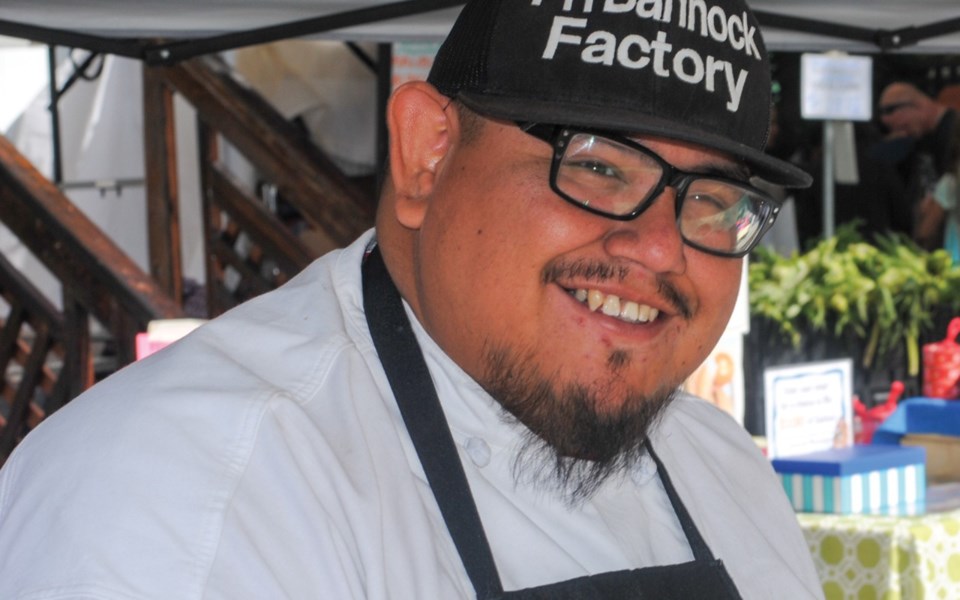Food has long been the gateway to the unfamiliar, serving as an accessible entry point into cultures different from ours. Ottawa has recognized this with the launch, last fall, of a new culinary tourism strategy that is meant to deepen the understanding of Indigenous cuisine, and through that, Indigenous culture itself. The Indigenous Culinary of Associated Nations (ICAN) is a joint effort between the federal government and the Indigenous Tourism Association of Canada (ITAC) that establishes a strategic framework to develop and market Canada's diverse Indigenous culinary experiences to the world.
"We want to make sure that we promote Indigenous culture through our tourism, and one of those aspects is food," said Brady Smith, former director of the Squamish Lil'wat Cultural Centre (SLCC) and current chief strategy officer for ITAC. "It's really important for all of us, when we look at Indigenous people, [to recognize] that food is a primary component of how we share conversations and make friendships. ICAN is really a part of that."
ICAN will focus on three key pillars as part of its strategy: connection, sharing and influencing as a way to nurture and support Indigenous chefs and restaurateurs. Founding ICAN member Paul Natrall, whose award-winning Mr. Bannock is Vancouver's only Indigenous food truck, said he would have benefitted from the kind of example ICAN is striving for when he was a young chef.
"Me as a chef coming up, I didn't know too many household names that were Indigenous chefs," he said.
"There are a lot of Indigenous cooks and chefs out there that could use mentoring and guiding and need a hand in helping showcase their food and what they're doing. We are all on the same page and we hope to do that for them."
Squamish Nation member Natrall has combined traditional First Nations cooking techniques with certain ingredients that would be more familiar to non-Indigenous consumers. But he feels there is room in the marketplace to accommodate the many styles of Indigenous cuisine, be they traditional or contemporary. "There are a lot of people that do really awesome, really traditional cooking. Then there are people like myself that are doing things for today and tomorrow," he said. "There's no right or wrong because a lot of people are still learning. The thing with ICAN is we have members from across the country and we do all different aspects of Indigenous cuisine."
Smith, who left the SLCC last fall, believes Ottawa needs to loosen its regulations around hunting and fishing for ingredients that have been part of the Indigenous diet for generations.
"A lot of Indigenous culinary experiences are held back due to the regulatory actions of the government on food. Many Indigenous people want to start cooking and sharing a traditional style of food, whether it's fresh game caught on land and brought to the table, such as moose, caribou and elk, or traditional methods of sharing salmon, be it air-dried or smoked," he said. "It's an emerging market still in British Columbia and Canada, but ICAN is working with the federal government of Canada in terms of ensuring that we can actually assist the growth of more authentic Indigenous food."
Recent research from ITAC has shown that one in three visitors to Canada are looking for an authentic Indigenous experience, and food can play an essential role in that education. At the SLCC, culinary offerings such as its popular Winter Feast have become an integral part of its growing business, explained communications and marketing manager Mandy Rousseau.
"Specifically with the First Nations Winter Feast, we are able to address a demand for after-hours exhibit access and pair it with a family-friendly dining experience. This program has increased year-round visitation to the SLCC, providing more employment for our team while sharing our cultures," she said in an email. "Beyond the First Nations Winter Feast, our in-house food and beverage has been instrumental in developing our tour operators, school groups, corporate and private events, and daily visitor programs. Indigenous cuisine is regionally based, so we regularly tweak our menus to include ingredients inspired by the two Nations, nurturing visitors' appetite and curiosity."
To learn more about ITAC, visit indigenoustourism.ca.




